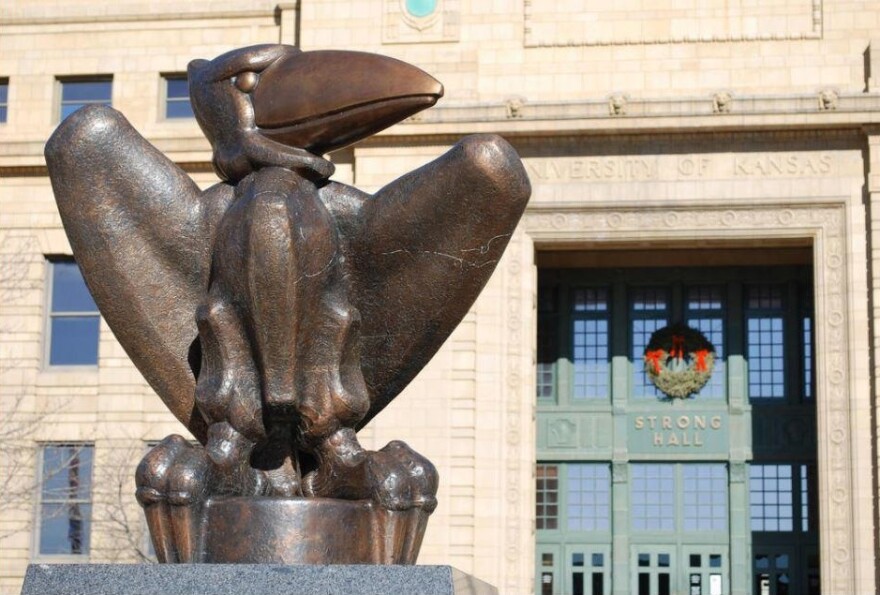As a panel of 16 jurors was selected, about 20 people gathered outside the Robert J. Dole U.S. Courthouse in Kansas City, Kan. to speak out against the China Initiative, a program intended to prevent spies from handing over American technology to China.
Tao, who faces seven counts of wire fraud and three counts of making false statements, was the first person charged under the now-defunct program. Prosecutors allege Tao concealed his connections with a Chinese university. Since Tao's arrest in 2019, the case has drawn national attention.
Outside the courthouse, protestors—several from a Lawrence church—held signs saying, “End Asian Discrimination,” “Stop racism” and “Justice for All.”
Tao’s wife, Hong Peng, said the experience has been traumatic for her, Tao and their two teenage children, and has caused financial distress. She said trial expenses, which she estimates amount to $1.3 million, have exhausted their savings and put the family at risk of losing their home.
Tao has not been allowed back on KU’s campus, wears an ankle bracelet, and has become extremely depressed, Peng said. “Our family has been trapped in a nightmare.”
Peng said she is fighting for fairness, “not only for my family, but for generations and for the good of the country.”
Representatives of the Kansas City Chinese American Association, KU’s Asian and Asian-American Faculty & Staff Council, and United Chinese Americans attended the press conference.
Additionally, the non-profit Asian Americans Advancing Justice filed an amicus brief in Tao’s case, saying the China Initiative targeted scientists based on their Chinese American ethnicity rather than criminal activity.
Tao, who has been at KU since 2014, was arrested at a time when federal law enforcement was scrutinizing academics with connections to China.
The China Initiative resulted in about two dozen arrests. However, many of those arrested, like Tao, weren’t charged with espionage, but rather wire fraud or concealing ties to Chinese universities in government grant applications. Prosecutors say Tao attempted to defraud KU, the National Science Foundation and the U.S. Department of Energy by not disclosing grant funding from the Chinese government and failing to tell KU of his employment at Fuzhou University in China.
U.S. District Judge Julie Robinson warned the prosecution and defense to stay focused on the basics of the case and not to stray into discussions of espionage and the China Initiative.
In February, the Biden Administration announced it was ending the policy.


